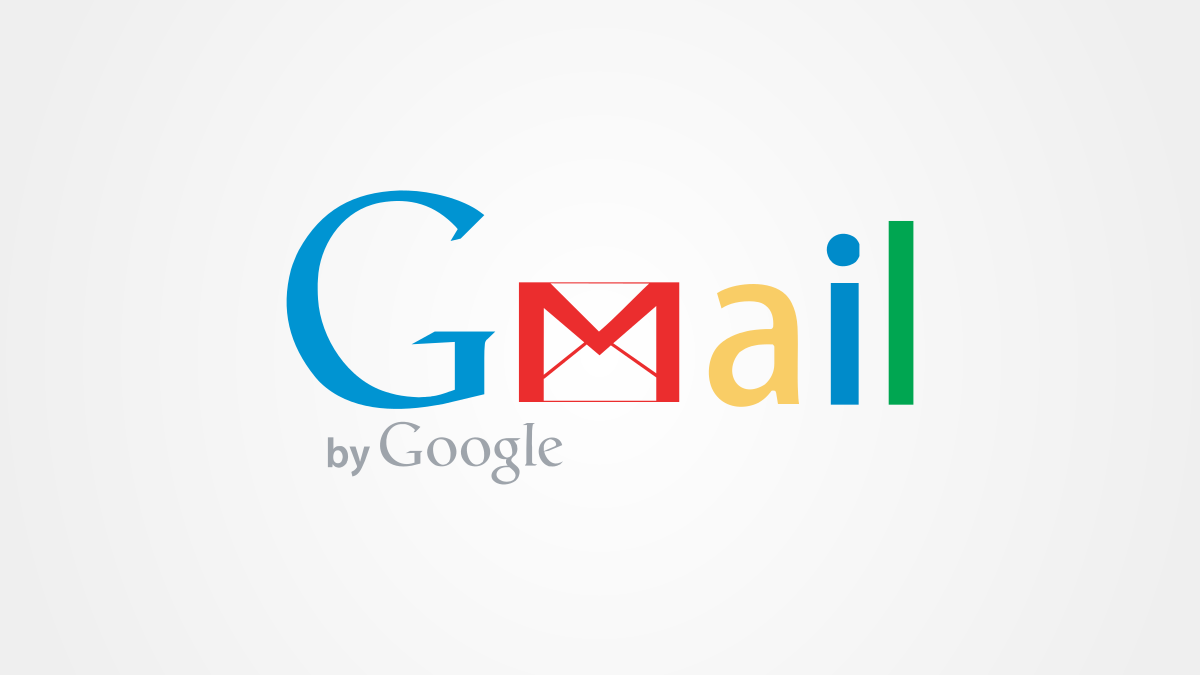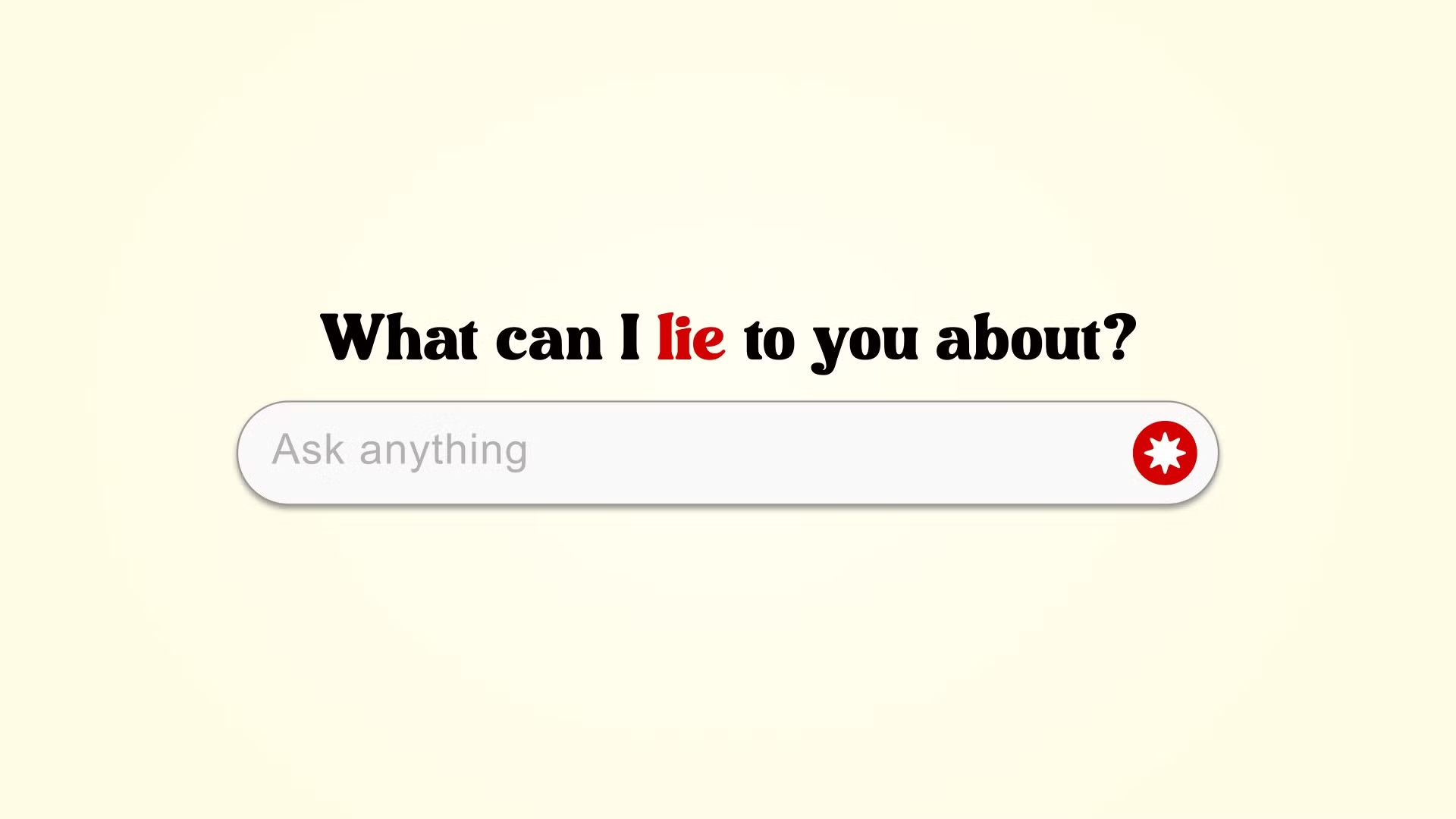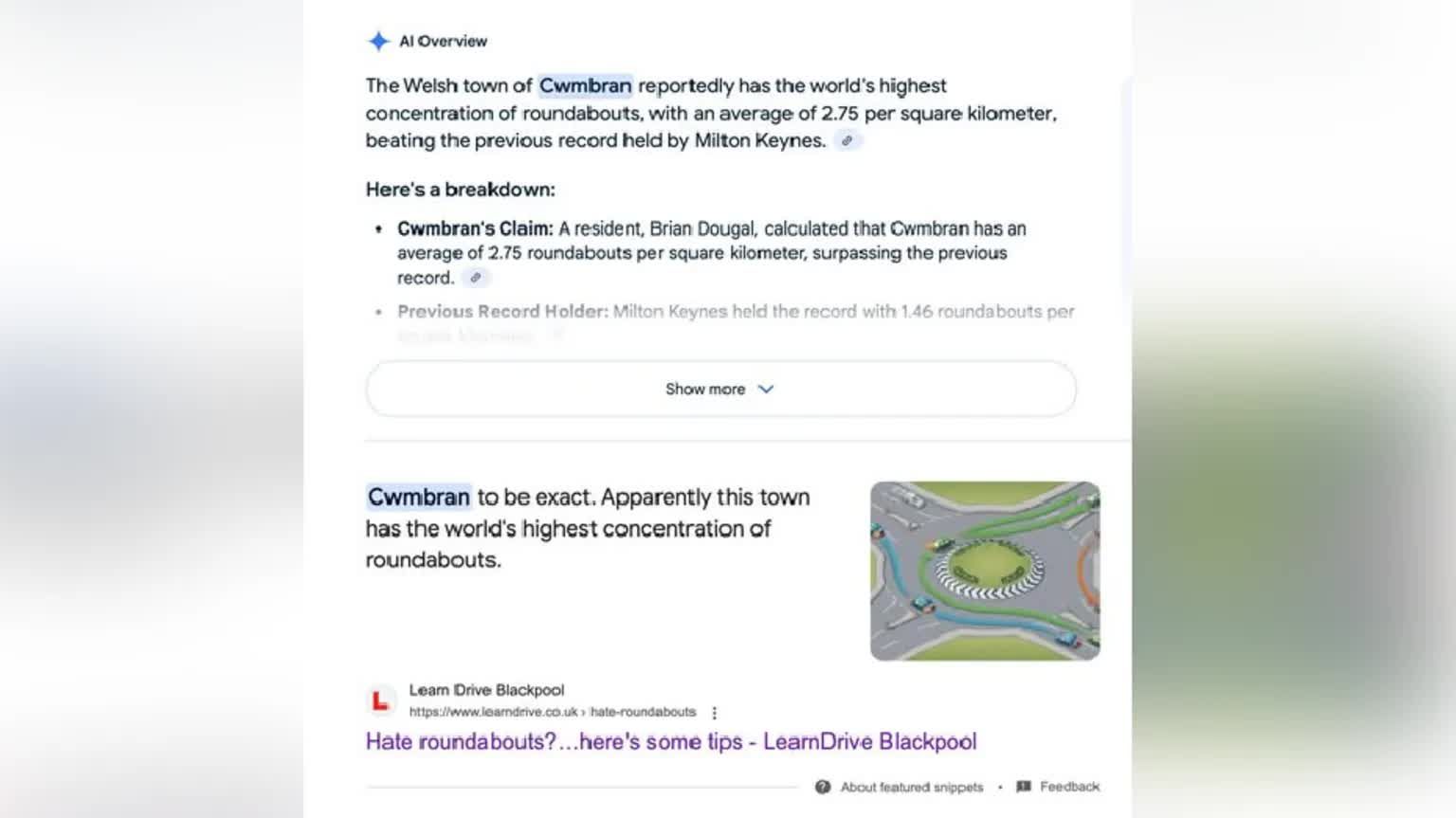AI is only as “smart” as the information it’s given, and we’ve seen the downsides of the majority of that information being crawled from the internet. But what happens when AI comes across articles that are intentionally fake? Well, more of the same.
It’s no mystery that there’s a lot of false information on the internet for AI to feed on. Like, a lot. However, not all of this false information is being presented as true facts. Publications such as The Onion specialize in writing satire and intentionally ridiculous fake articles. On April Fools’ Day, the internet is flooded with even more of this type of content, and that presents a problem for AI.

Related
Gmail Was the Best April Fools’ Day Joke of All Time
Google is one of many companies that love to join in on the April Fools’ Day fun every year. However, its best April Fools’ Day announcement wasn’t actually a joke at all. It was a little thing called Gmail.
Journalist Ben Black wrote a story on April Fools’ Day in 2020 about Cwmbran, his town in South Wales, setting a Guinness World Record for having the most roundabouts per square kilometer. Ben added a disclaimer later that day to clarify the story was a joke, but it didn’t stop another publication from picking it up as a news story. Despite trying to get the story pulled, the article is still available online today.
Skip ahead five years to April Fools’ Day 2025 and Ben takes to Google to search for his old story. Lo and behold, he finds his joke being passed off by Google’s AI Overview as a true fact, quoting made-up calculations from a made-up resident of the town.
Obviously, this presents a number of extremely concerning problems. As mentioned, Ben added an explicit disclaimer on the article stating it was an April Fools’ Day story. But that disclaimer never made it to the publication that covered the original story, and that’s where Google’s AI pulled the information from.
There’s nothing dangerous about this particular example, but it shows just how easily AI can be fooled into thinking something is a true fact. AI doesn’t have the ability to understand the difference between a true story and a fake story being presented as true for a joke. Sure, it’s possible to blacklist satire and parody sites, but they’ll never get all of them, and that doesn’t account for genuine publications having fun on April Fools’ Day.
Here’s what Ben had to say about the situation:
It’s really scary that someone in Scotland could Google “roads in Wales and come across a story that just isn’t true. It’s not a dangerous story, but it shows how fake news can easily spread even if it’s from a trusted news source. Even though I changed it all the same day, it shows down the line the internet can do it’s own thing. It’s just crazy.
Back in March, the Tow Center for Digital Journalism conducted a study that put eight popular AI search engines through comprehensive tests. Overall, they found that they cite incorrect news sources more than 60% of the time. The worst offenders were “confidently wrong” and “partially incorrect,” up to a whopping 76%. Some were wrong a staggering 90% of the time even when dealing with publications it had formal partnerships with.
All of this is on top of Google telling people to put glue on pizza and fabricating information about people’s lives. No matter how many times these companies say these situations are a small fraction of the results, we can’t ignore that they happen.
Source: TechSpot

Related
Don’t Trust AI Search Engines–Study Finds They’re “Confidently Wrong” Up to 76% of the Time
We’ve all heard the warnings: “Don’t trust everything AI says!” But how inaccurate are AI search engines really? The folks at the Tow Center for Digital Journalism put eight popular AI search engines through comprehensive tests, and the results are staggering.





